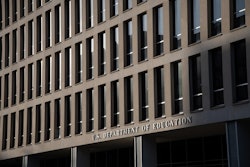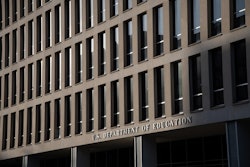Bennett College, one of only two remaining historically Black colleges for women, has been here before.
At the start of a new academic year, it’s a precarious place. For the tuition-driven college, fall enrollment numbers are in flux. And contingency plans are being put in place if a legal battle to stay accredited fails, debts can’t be paid and the doors have to shutter. These are among the large and looming challenges confronting the 146-year-old institution — and that now belong to Suzanne Elise Walsh, Bennett’s surprising and unconventional choice for its new president.
Until 2018, Walsh was deputy director for the Bill & Melinda Gates Foundation’s work on postsecondary education. Now, as Bennett charts a new path forward, it is counting on Walsh, who will be a first-time college CEO, to be its rudder, innovator and fundraiser.
“Sure, it’s daunting and scary,” Walsh revealed in a recent interview about her first-ever role as a college president regarding the enrollment, accrediting and funding challenges she inherited — and must tackle. At the same time, Walsh says she’s both realistic and optimistic about what lies ahead, and “excited and giddy” to welcome her new students, faculty and families this month to the Greensboro, N.C. campus.
The 50-year-old Walsh won’t have the benefit of a collegial and customary hand-off from her predecessor. The board dismissed Dr. Phyllis Worthy Dawkins, Bennett’s president of three years, just six days before announcing that Walsh would be stepping in to take the helm.
The dizzying shift, which was likely hatched while Dawkins was still in office, caught many of the school’s supporters off guard, including Bennett’s own alumnae, they say. Just months earlier, Dawkins had become the face of an emergency campaign to raise $5 million. Bennett was in a race to restore its accreditation and be in good standing with its regional accreditor, the Southern Association of Colleges and Schools Commission on Colleges (SACSCOC). In 1957, Bennett was one of the first and the only private Black college to be admitted into full membership in SACSCOC.
Far surpassing its goal, the campaign netted $9.5 million in about 60 days. The national appeal, known by its hashtag #StandWithBennett, was bolstered by the prayers and dollars of its Belles, as its students and alumnae are known. And it was fueled by a variety of donors, from churches to pop stars and other higher education institutions. Among them was North Carolina’s High Point University, another private, United Methodist Church-affiliated school, that pledged support for Bennett and donated nearly $1.5 million. In the process, Dawkins was largely credited with garnering some of the campaign’s largest gifts and quickly forging new alliances.














